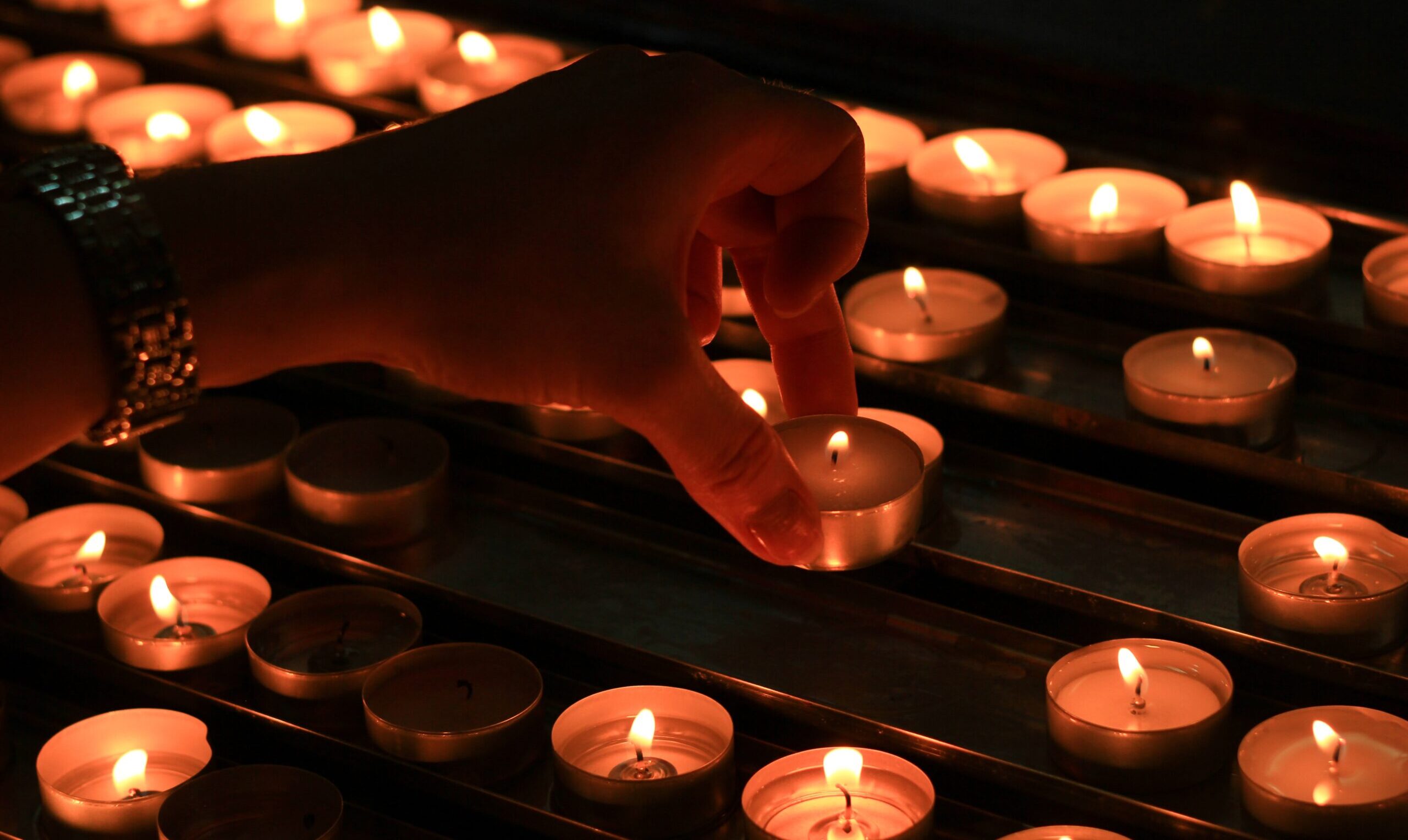Why pray for the dead? Well, to answer that, we have to step back a bit and look at how it all works in this great love story between God and us. God, who is perfect, desires perfection for us. He hungers for us to “be perfect, as [Our] Father in heaven is perfect.” This perfection that He desires for us is a difficult thing. But once we give God permission to do so, He will literally stop at nothing to get us there. The thing is, we’ve got three enemies working against us in this quest: the world, the flesh and the devil. Let’s take a quick look at each.
When we talk about “the world,” we’re talking about a mind-set, a way of thinking that permeates our culture. It’s any message passed along to us that is contrary to the Gospel. Pope St. John Paul II talked about “the culture of death” and that is a perfect example of what we mean by “the world.” When we talk about “the flesh,” we’re not talking about our skin. Our bodies are sacred. Instead, we’re talking about that spoiled inner child who lives inside of each of us who wants what he wants when he wants it. It’s that part of us that lies and manipulates and is selfish. Finally, when we talk about the devil, we’re talking about that fallen angel who works hard to destroy, create chaos and lead us into sin. All three are our enemies.
We pray for our living teammates, our brothers and sisters. We also pray for those who have gone before us and who may now be in the process of perfection.
Now, confronting these enemies are the grace, power and love of Jesus as He works in and through all of His creation. We fight these enemies all our days and this fight, coupled with our sin and the sin around us, leave us with scars and battle damage. Sometimes, the work of holiness is so hard, we even work against God. However, since we gave God permission to make us perfect, He never gives up.
So, what does this have to do with praying for the dead? Well, those of us struggling for perfection through God are all on the same team, wherever we are.
Some are here on earth: we fight, we struggle, we pray, we remain faithful, we never give up! We know this process begins on earth, but our eternal reward is perfection in heaven.
In the same way we pray for our living teammates, our brothers and sisters, we also pray for those who have gone before us and who may now be in the process of perfection. This process is called purgatory, where God’s perfect love and grace confront and heal the damage we’ve done to our souls on earth. Here, God takes His hunger for our perfection up a notch.
There also are the saints in heaven. These are the folks who have finished the process of purgatory and have entered fully into God’s glory. The joy that waits there cannot be described.
So, why pray for the dead? Because all three groups—the saints on earth, the saints in purgatory and the saints in heaven—are all on the same team, united by the same God who loves us all. Look at what Paul wrote in Romans:
What will separate us from the love of Christ? Will anguish, or distress, or persecution, or famine, or nakedness, or peril, or the sword? No, in all these things we conquer overwhelmingly through him who loved us. For I am convinced that neither death, nor life, nor angels, nor principalities, nor present things, nor future things, nor powers, nor height, nor depth, nor any other creature will be able to separate us from the love of God in Christ Jesus our Lord. (Rom 8: 35, 37-39)
C.S. Lewis, in “Mere Christianity,” uses the image of a child with a toothache who goes to his mom for something to stop the pain. Mom gets him the immediate relief, but also takes him to the dentist, who finds all the problems with all his teeth and gets right to work. Does it hurt? Yes, but it’s a healing hurt.
The saints in heaven pray for us on earth and those in purgatory—what a wonderful love that connects us even in and after death!
I leave you with a few words from “Mere Christianity.” Go check this book out and enjoy another day in God’s presence!
“If we let Him—for we can prevent Him, if we choose—He will make the feeblest and filthiest of us into a god or goddess, a dazzling, radiant, immortal creature, pulsating all through with such energy and joy and wisdom and love as we cannot now imagine, a bright stainless mirror which reflects back to God perfectly (though, of course, on a smaller scale) His own boundless power and delight and goodness. The process will be long and, in parts, very painful; but that is what we are in for. Nothing less. He meant what He said.” – C.S. Lewis
By Father Joe Krupp is a former comedy writer who is now a Catholic priest.
Published in the November 2022 issue of Catholic Life Magazine

